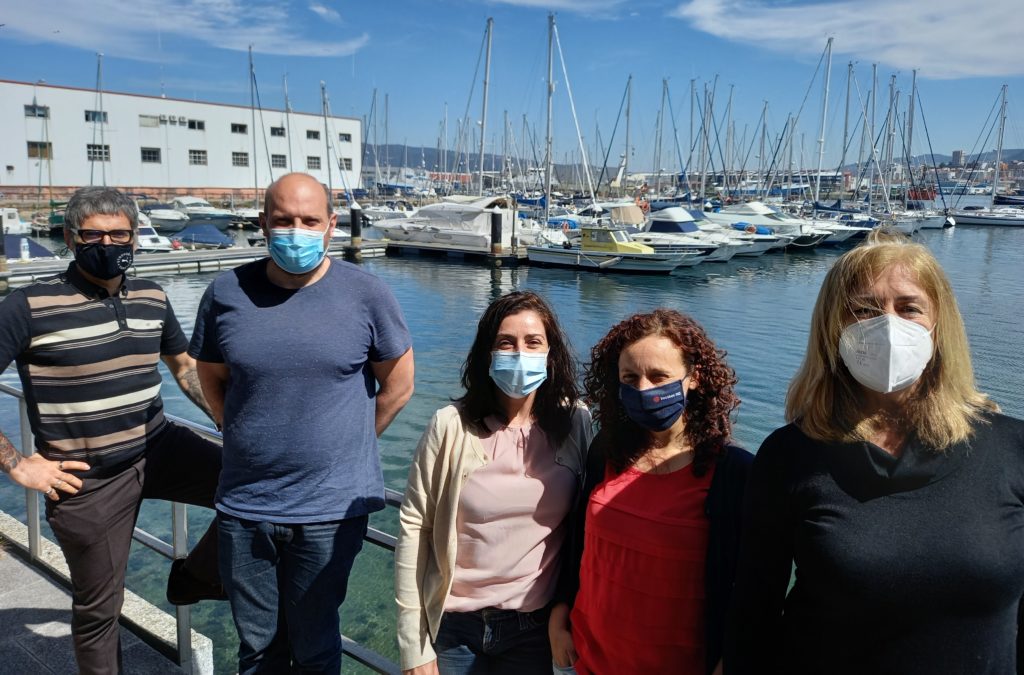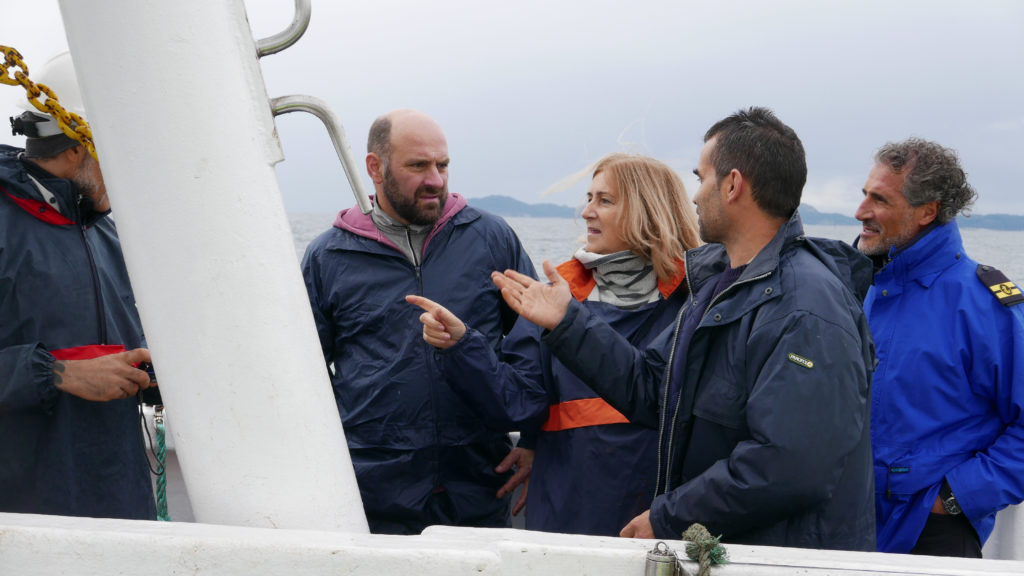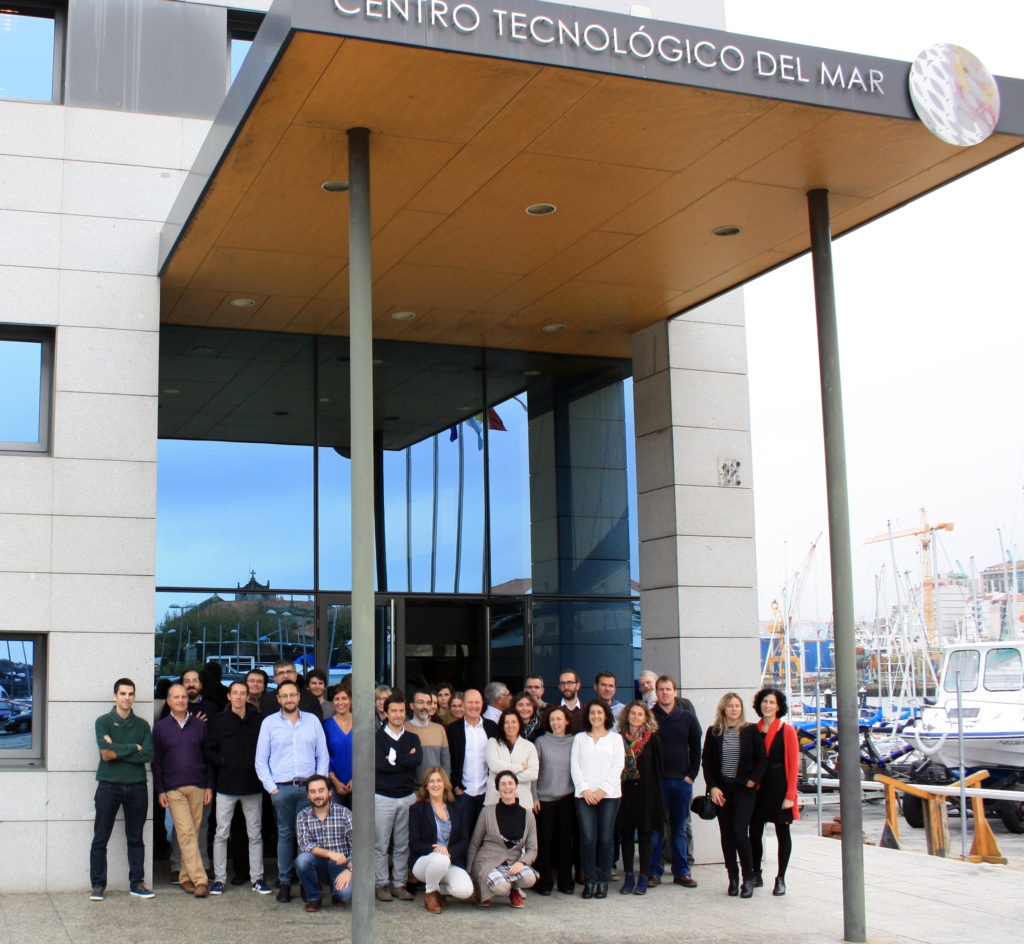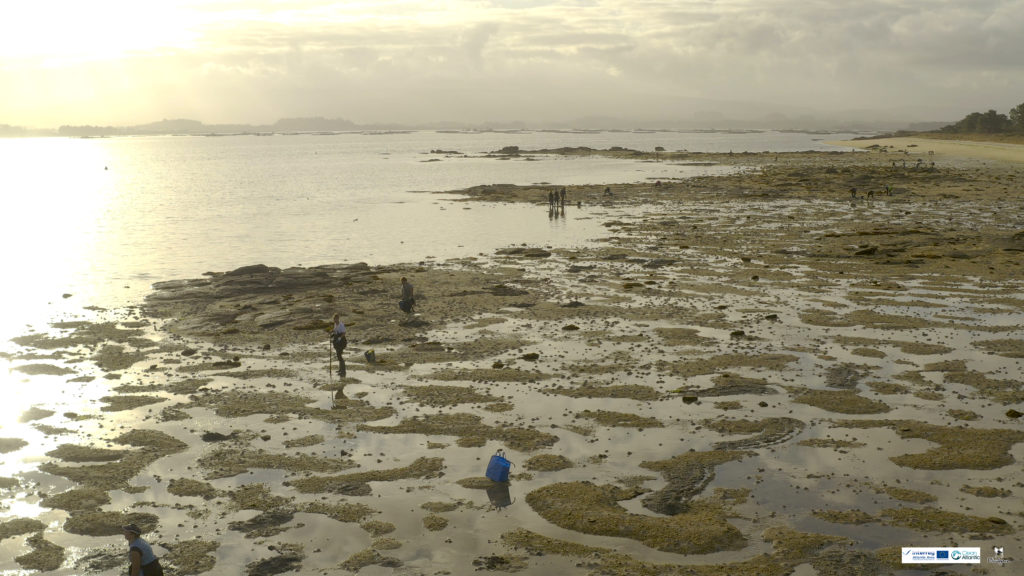Retrospective of CleanAtlantic: Interview to CETMAR

Today we are interviewing the CETMAR team, coordinator of the CleanAtlantic project.
Why did you join the CleanAtlantic project?
Answer: Tackling marine pollution on its different aspects of prevention, response and mitigation has been a key line of work in CETMAR from its creation in 2001 and the driver of relevant collaborative EU projects and alliances in the last few years, especially in the framework of the Interreg Atlantic Area Programme where we participated in EROCIPS and coordinated ARCOPOL series of projects (http://www.arcopol.eu/). Moreover, in 2007, we started working on marine litter and since then, we have developed different projects addressed to gain information and knowledge, develop good practices and to implement fishing for litter activities in close collaboration with the fishermen and port operators. Guided by these objectives, making use of the experience and alliances established in previous initiatives and being aware of the need to address a transnational environmental challenge such marine litter through regional collaboration, we decided to go ahead with CleanAtlantic and worked together with our partners to build a solid proposal to tackle marine litter with a holistic and multidisciplinary approach.
How did you experience the role of coordinator in CleanAtlantic?
Answer: The promotion of links and interactions among governmental agencies, research institutions, the industry and civil society in the maritime and fishing sector is a core activity of CETMAR so we feel very happy to play the coordination role in CleanAtantic. This is an extremely rich experience that involves dealing with very different organizations trying to make the better use of project resources, promote synergies and complementarities and foster the sharing of knowledge and experience among the partners. The working environment has been really friendly, motivating and productive from the very beginning, the communication is very fluent and at this stage of the project we (all the partners) share a common mission of delivering useful results that can be applied beyond the project lifetime and partnership geographical area.

What did you develop throughout the project? How did the project influence your work?
Answer: As project coordinators, we have tried to keep the communication flow among the partners, promoting necessary interactions to make the better use of this collaborative framework and we are monitoring the project execution based on objectives, working plan and expected results. Providing assistance and support regarding reporting obligations are also important tasks. We are also strongly involved in communication and capitalization activities trying to promote and disseminate as much as possible project outcomes to make the best use of the knowledge and resources generated in the project. Aligned with this objective, and together with the CRPM and with the partner contribution we have built a user-friendly online database that will facilitate the access to marine litter relevant results and resources generated by EU and national projects and expert organizations.
We are also especially active in terms of promoting prevention and reduction of marine litter. For that purpose, we carried out pilot actions to implement fishing for litter activities with the collaboration of fishermen and to test, in collaboration with the Galician Coastguard, the performance of a fishing gear designed to retrieve marine litter minimizing fish captures. Moreover, a pilot action to remove ALDFG is currently being developed in collaboration with the “Parque Nacional de las Islas Atlánticas”. Awareness raising is also under our scope of activities we have developed innovative materials and activities with scholars from coastal communities until the COVID related restrictions hampered it.
What is your best CleanAtlantic memory?
Answer: Every project meeting has been great and we have wonderful memories of all the places where we met with the project partners (Madeira, Brest, Galway and of course, Vigo). With the passage of time you can feel that strong links have been created among the people working together and the atmosphere becomes much more creative and collaborative. Regrettably, COVID situation has prevented us to keep those fruitful interactions that currently have to be carried out remotely. I have also very nice memories of the pilot action we carried out with the Galician CoastGuard to remove marine litter with an adapted fishing gear. We (CETMAR and IEO team) could be directly involved in the field tests and we learnt a lot from sea professionals.

What did you learn from the project? How does inter-regional cooperation can foster the fight against marine litter according to you?
Answer: Marine litter has no frontiers as the coastal and ocean circulation turns it into a transnational issue that demands collaborative work and inter-regional cooperation. The need of transnational approaches is at the hearts of the OSPAR Marine Litter Regional Plan and MSFD implementation, which require consistency and coherence in terms of marine litter assessment, monitoring, data management and development of programmes of measures. Inter-regional cooperation is of paramount importance to share information, knowledge and resources and to commonly define and improve protocols, good practices and tools that can be adapted/applied for all the regions, taking into account specific needs but under a consistent and harmonized approach. CleanAtlantic is an excellent example of how inter-regional cooperation can contribute to tackling common issues and advance on the protection of the health of our coasts and oceans.
What are the future activities your organisation is planning regarding marine litter?
Answer: We are going to work at two complementary levels. At local level, supporting the regional Government of Galicia in the implementation of fishing for litter and awareness raising projects with the involvement of the fishing sector and funded by the European Maritime Fisheries Fund. At EU level, we plan to continue the work done by CleanAtlantic and together with the partners we are exploring opportunities that may arise from different Funding Programmes. There is a lot to do in terms of capitalization of project results and there are still challenges and important gaps of knowledge and technology that deserve transnational collaboration to tackle marine litter.



 EN
EN ES
ES FR
FR